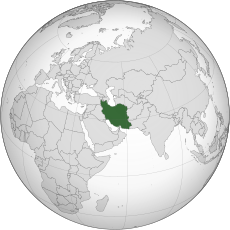United Nations Security Council Resolution 1696
| UN Security Council Resolution 1696 |
|
|---|---|

|
|
| Date | 31 July 2006 |
| Meeting no. | 5,500 |
| Code | S/RES/1696 (Document) |
| Subject | The situation concerning Iran Non-proliferation |
|
Voting summary
|
14 voted for 1 voted against None abstained |
| Result | Adopted |
| Security Council composition | |
|
Permanent members
|
|
|
Non-permanent members
|
|
United Nations Security Council Resolution 1696, adopted on July 31, 2006, after expressing concern at the intentions of the nuclear programme of Iran, the Council demanded that Iran halt its uranium enrichment programme.
Resolution 1696 was adopted by 14 votes in favour to one against (Qatar) and no abstentions. Qatar said that while it agreed with the demands of the resolution, it was not the right timing as the "region was in flames".
The International Atomic Energy Agency (IAEA) Board of Governors concluded in September 2005 that Iran had not complied with its safeguards agreement and that its nuclear program raised questions within the competence of the Security Council. In February 2006, the IAEA Board reported those conclusions to the Security Council, after it determined that Iran had not provided sufficient clarification of its nuclear intentions.
In the preamble of the resolution, the Security Council reaffirmed the provisions of the Nuclear Non-Proliferation Treaty and the right of states to the peaceful use of nuclear energy. It was "seriously concerned" that the IAEA was unable to clarify the intentions of the nuclear programme, and whether there were any undeclared activities or materials within Iran. Iran had also not taken steps required of it by the IAEA, according to the reports of its Director-General, Mohamed ElBaradei.
The text underlined the need for a political and diplomatic resolution to the situation, while expressing the proliferation risks presented by the Iranian nuclear programme and members of the Council not willing to aggravate the issue.
Acting under Chapter VII of the United Nations Charter, the Council called upon Iran to follow through with the requirements of the IAEA which would build confidence and resolve outstanding questions. It demanded that Iran suspend all enrichment-related and reprocessing activities, which would be verified by the IAEA. The resolution stated that compliance with the requirements of the IAEA would contribute to a diplomatic solution guaranteeing that Iran's nuclear programme is exclusively for peaceful purposes. Furthermore, the proposals of China, France, Germany, Russia, the United Kingdom and United States for a long-term comprehensive solution were endorsed.
...
Wikipedia
